
AIQUAMA
AI-based Quality Assurance in Car Body Construction
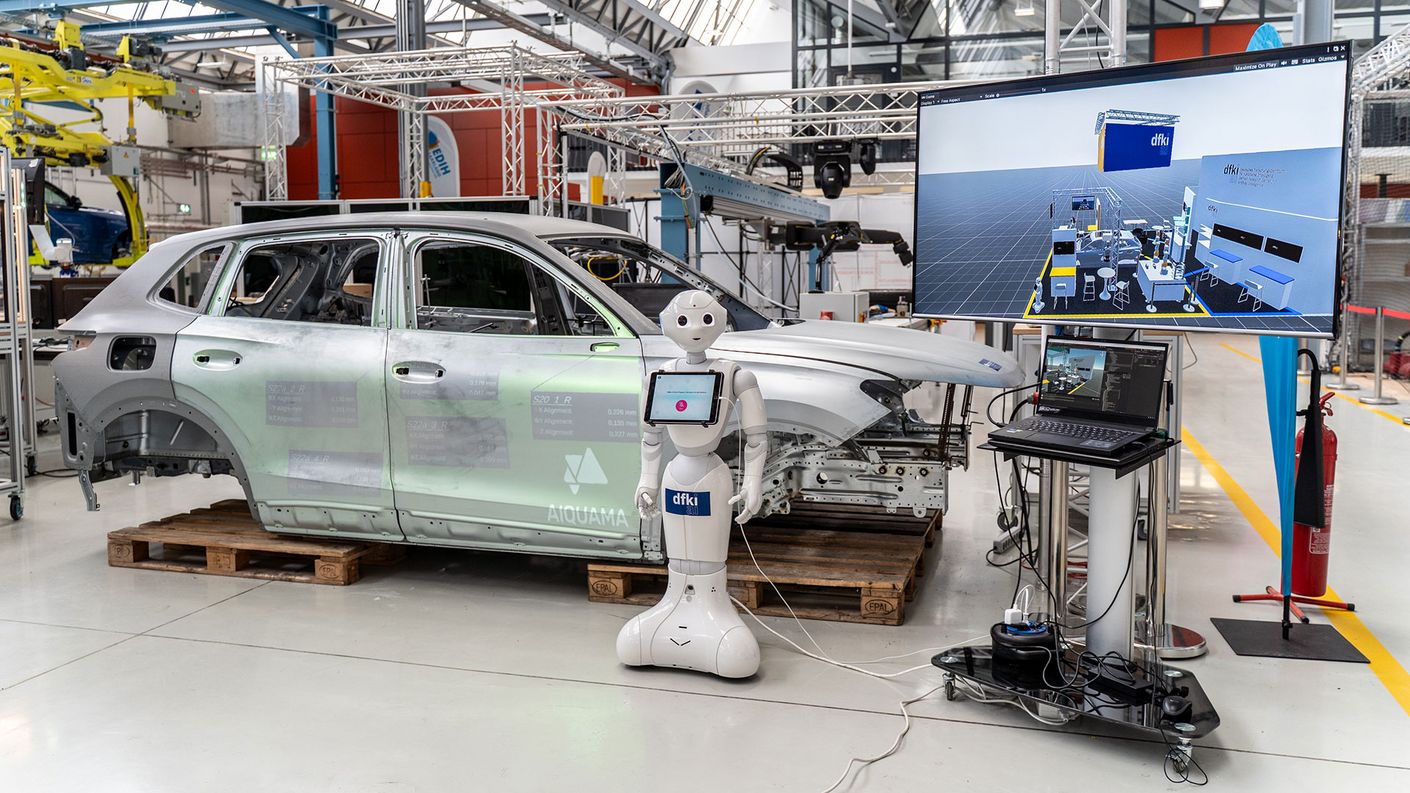
Narrow, precise gaps in doors, hoods, and tailgates are considered a hallmark of modern vehicles. Ensuring accurate gap dimensions serves not only purely aesthetic needs but also functional importance – such as achieving a uniform closing force and optimum tightness. Correctly adjusting doors requires significant effort in the production process. Firstly, the car body must be precisely measured, with the recorded measurement data immediately available and analyzed. Based on this, specific adjustment instructions are derived to account for all dependencies. After adjustment, a final quality check is performed through re-measuring. The goal is to avoid rework and maintain high-quality standards.
DFKI's industrial demonstrator from the AIQUAMA (AI-based Quality Management for Smart Factories) project shows how integrative sensor technology interacts with the digital twin and AI to enhance quality assurance in car body construction. A bodyshell will be utilized to demonstrate how a combination of intrinsic sensor data and external sensor technology can create a comprehensive representation of the production environment and the individuals involved, including their current status. Are car doors open or closed? Is a worker engaged in work on a door, or is he on his way there?
All recorded raw data is processed in the administration shell to compare the actual status with the target status. If the gap dimension requires correction, the worker receives clear instructions from the Industrial Metaverse - either through mixed reality glasses or as a projection directly onto the vehicle door. This allows for a targeted readjustment of the screw connection on the door.
The AIQUAMA demonstrator, which includes a robotic production cell for modular battery retrofitting and a control algorithm for the humanoid Unitree H1 robot, represents a part of DFKI's Twinned AI innovation field. DFKI views this as a further advancement of the Industry 4.0 concept of the digital twin - intelligent models that simulate, optimize, and ultimately execute physical processes.
The AIQUAMA demonstrator marks the first step from the digital twin to twinned AI: from recording and analysis to concrete recommendations for action and automated testing.
The AIQUAMA project is funded by the Federal Ministry of Education and Research with approximately 1.8 million euros over three years. Its aim is to identify errors and anomalies in the production process at an early stage, thereby avoiding costly reworking, time-consuming final inspections, and delivery delays. In addition to DFKI, the Czech Technical University in Prague, the University of Brno, and the Technical University of Ostrava, the project also involves application partners Volkswagen AG and Škoda Auto.
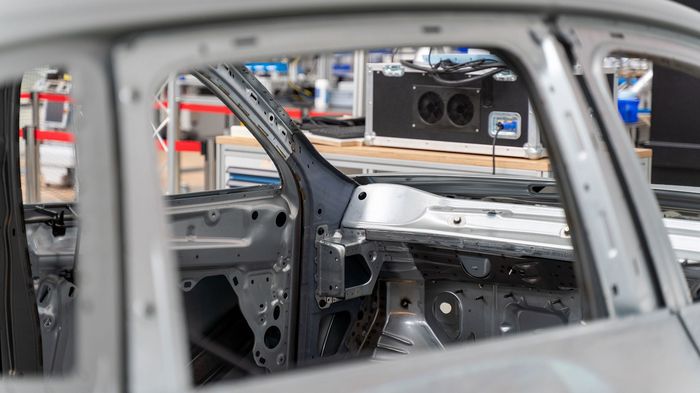 © DFKI, Jaron Hollax
© DFKI, Jaron Hollax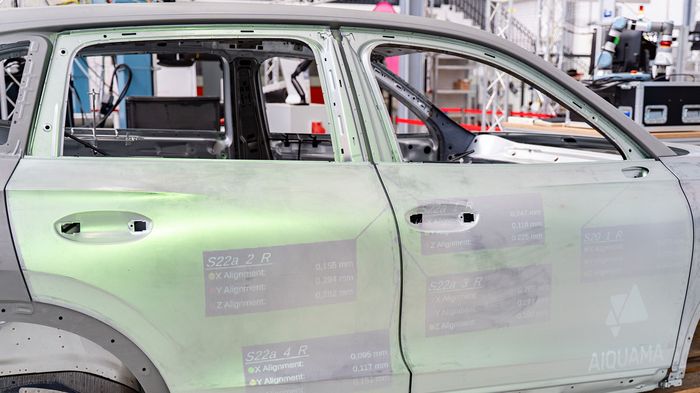 © DFKI, Jaron Hollax
© DFKI, Jaron Hollax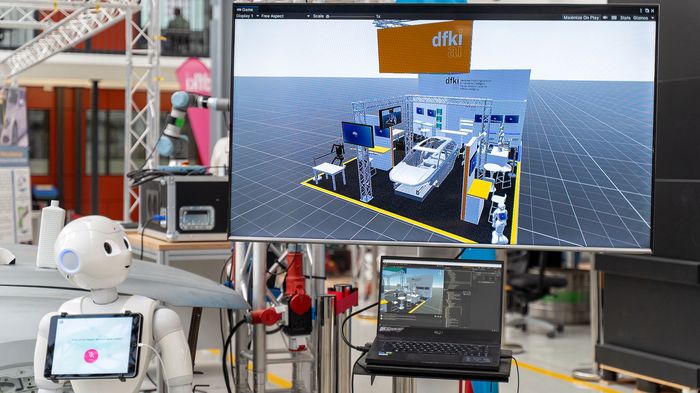 © DFKI, Jaron Hollax
© DFKI, Jaron Hollax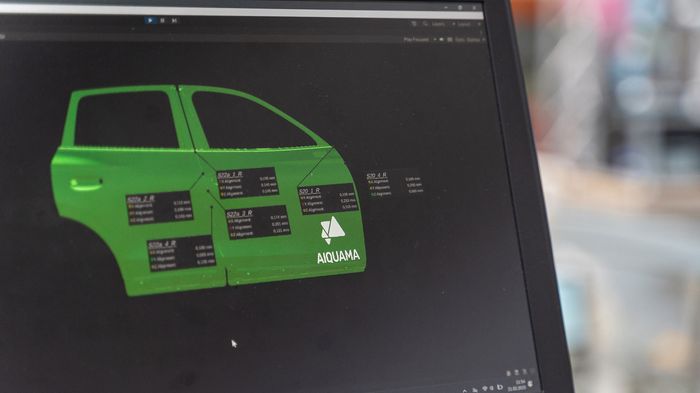 © DFKI, Jaron Hollax
© DFKI, Jaron HollaxBack to: DFKI at Hannover Messe 2025